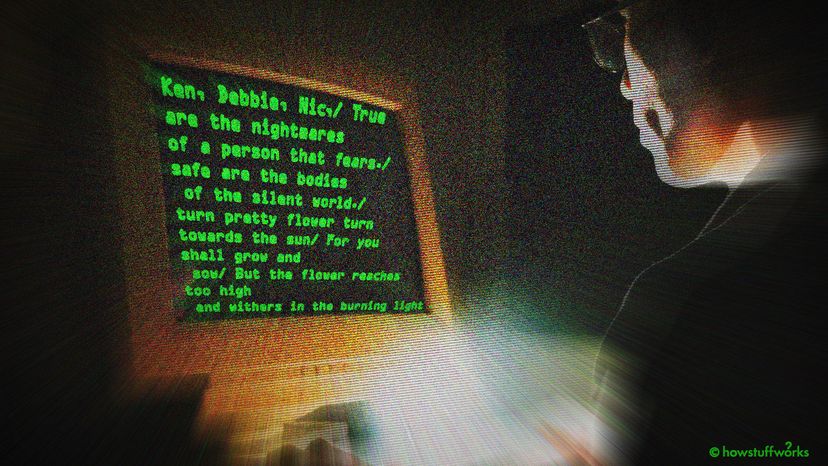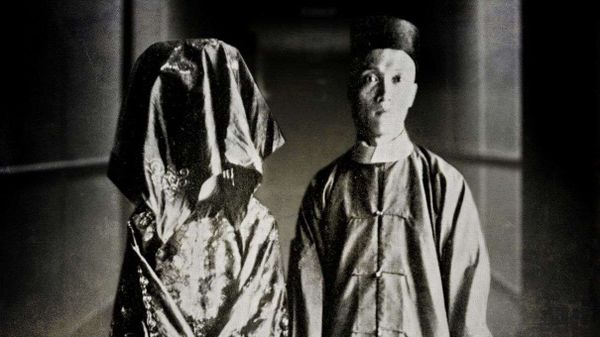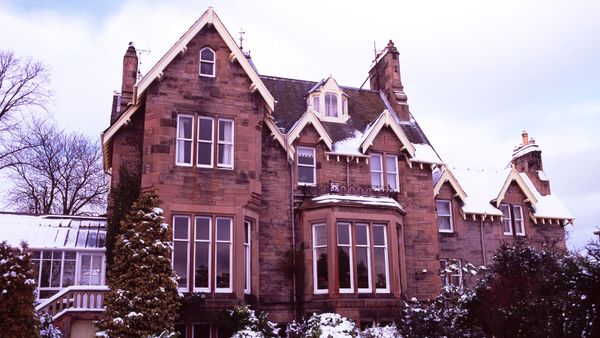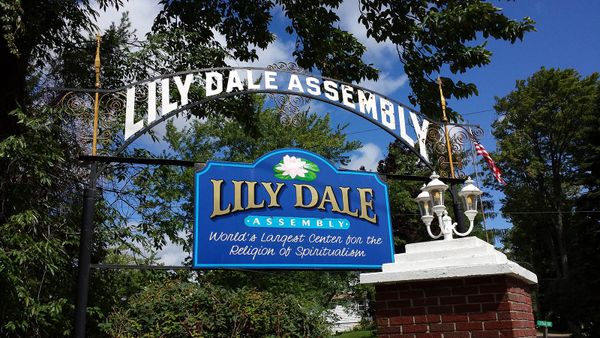When Webster, whose "main interests are contemporary music and old jaguar cars," moved into his 18th-century cottage, he was fully prepared to occupy a piece of history. However, Debbie and Ken were shocked to find that history seemed to want to talk to them, too.
"Webster was teaching at a local school and brought home a computer borrowed from the school," explains Poyntz. "The messages start out by asking about who Ken and Debbie are — the writer appears to be able to see them — and accuses them of stealing his house," Poyntz adds.
Webster detailed the events in his book, "The Vertical Plane." He transcribed the first message ever received through the computer, a poem that was as beautiful as it was ominous:
True are the nightmares of a person that fears. / Safe are the bodies of the silent world. / Turn pretty flower, turn towards the sun for you shall grow and sow. / But the flower reaches too high and withers in the burning light. / Get out your bricks — / Pussy Cat, Pussy Cat went to London to seek fame and fortune. / Faith must not be lost for this shall be your redeemer.
A few days later, Webster found a second message, equally mysterious, but this time is written in some archaic version of British English.
I write on behalf of many — What strange words you speak — You are a worthy (good) man who has a fanciful woman, and you live in my house (who dwell in my home) — with lights which (the) devil makes — It was a great crime to have stolen (bribed) my house. — L.W.
An astute student of 16th- and 17th-century writing, Poyntz details the unique nature of L.W.'s (later revealed as "Lukas") messages. "Lukas' messages are written in archaic English, with old-fashioned spellings and vocabulary and dialect from the time and region," he says.
Over 18 months in 1985 and 1986, messages continued to appear on the computer, and Webster committed himself to figuring out who — or what — was behind them. He asked the person, ghost or presence a series of questions about where, and when, he was from. He asked what college he went to and who was the reigning king of the time.
Poyntz describes an exchange that answered some questions, and yet left many more in the wake of Lukas' cryptic reply. "Lukas is suspicious about Ken and Debbie's motives. He deliberately lays traps for them to see if they are really from the future — in his time, there was no Jesus College in Oxford — it was founded in 1571 — so he thinks that anyone from the future would know he has given, what from his perspective, is obviously false information ... his real name emerges later, as Thomas Harden or Hawarden. Someone of this name did exist and was vicar of a church in Gloucestershire in the 1550s."
The messages continued and it became clear that Thomas could see and hear some of the goings-on in Meadow Cottage, as he would comment on photos left on the kitchen table by Webster, like a picture of a Jaguar car that Thomas mentioned later in a message:
I have found your picture of the cart, but it is a crude thing for without the horse it won't go far.



